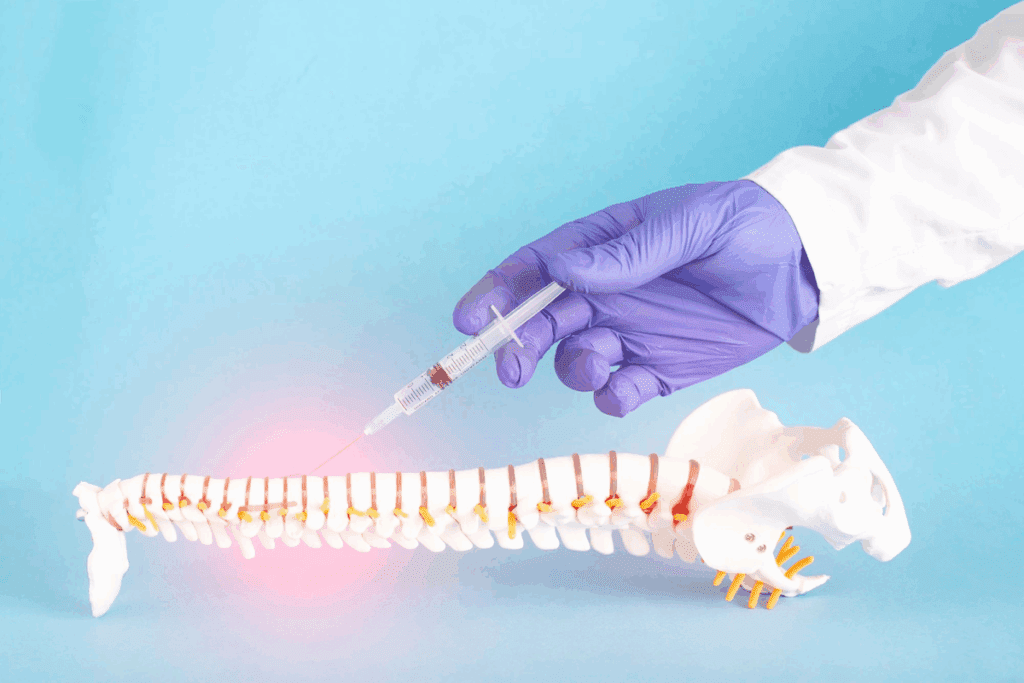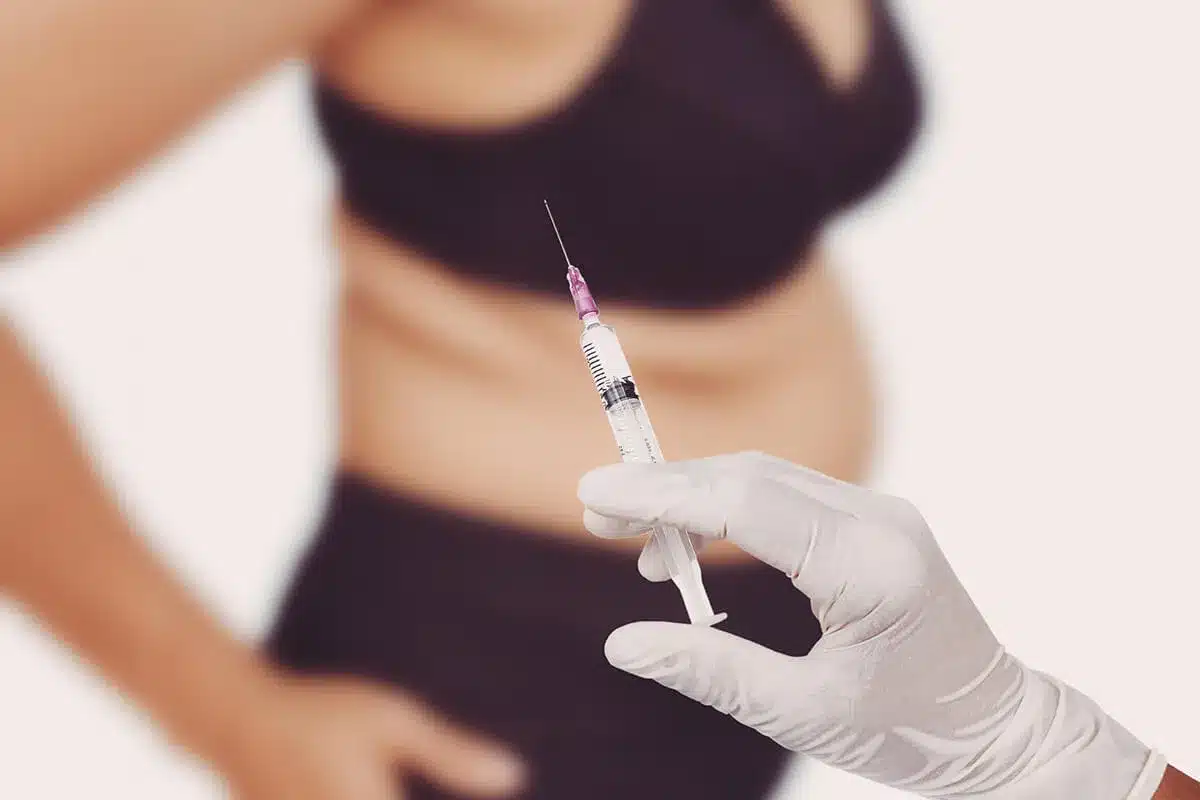
At Liv Hospital, we know you might have questions about steroid injectionswhat do steroid injections doHow Long Do Stem Cell Injections Last?. These treatments help reduce inflammation and ease pain in different parts of the body. Steroid shots are often used for allergies, arthritis, and eczema.
It’s important to know about the uses, safety, and side effects of steroid injections. We want to give you all the information you need to make the right choice for your health.
Learning more about steroid injections helps us understand their role in treating health issues. We aim to clear up any confusion about their benefits and risks.
Key Takeaways
- Steroid injections are used to reduce inflammation and relieve pain.
- They are commonly used to treat conditions like allergies, arthritis, and eczema.
- Understanding the uses, safety, and side effects is key for patients.
- Steroid shots can have side effects that need to be considered.
- Patients should be informed about the benefits and risks of steroid injections.
Understanding Steroid Injections and Their Function

Corticosteroid injections are a common treatment for swelling and pain. We use them to target inflammation in specific areas. This helps patients with different conditions find relief.
What Is a Steroid Injection?
A steroid injection is a medical procedure. Corticosteroids are injected into areas like joints or muscles. This delivers anti-inflammatory medication right where it’s needed.
“Steroid injections have changed how we treat inflammation,” says a top medical expert. “They offer a precise way to manage pain.”
How Corticosteroids Work in the Body
Corticosteroids act like hormones our bodies make, like cortisol. They reduce the immune system’s inflammation. This cuts down swelling and pain.
They work by stopping the production of molecules that cause inflammation. This means less pain and discomfort for the patient.
Different Types of Injectable Steroids
There are many types of corticosteroids for injections, like triamcinolone and methylprednisolone. Each has its own strength and how long it lasts. Doctors pick the best one for each patient.
The choice of corticosteroid and how often to use it depends on several things. These include how bad the condition is, the patient’s health, and how they react to treatment.
What Do Steroid Injections Do? Medical Applications

Steroid injections have many uses in medicine. They help reduce inflammation and control the immune system. These injections are used to treat different conditions because they are strong against inflammation and immune responses.
Primary Anti-inflammatory Mechanisms
Steroid injections stop the body from making substances that cause inflammation. This reduces swelling and pain in various conditions. Corticosteroids, the main ingredient, slow down immune cells like macrophages and T lymphocytes. These cells are key to inflammation.
These injections have many benefits. They not only lessen swelling and pain but also improve how well the affected area works. This is great for people with arthritis, as it can greatly reduce discomfort and disability.
Immune System Modulation Effects
Steroid injections also affect the immune system. Corticosteroids can help in treating autoimmune diseases by reducing the immune system’s activity. This is important because in autoimmune diseases, the immune system attacks the body’s own tissues.
Controlling the immune system is key in managing conditions where the immune response is too strong or wrong. Steroid injections can lessen the severity of allergic reactions and symptoms of autoimmune diseases.
Pain Relief and Symptom Management
Steroid injections also help with pain relief and managing symptoms. By reducing inflammation and swelling, they can greatly improve life quality for those with chronic pain.
The table below shows the main benefits of steroid injections for different conditions:
| Condition | Primary Benefit | Mechanism of Action |
| Arthritis | Pain Relief and Reduced Inflammation | Anti-inflammatory effects |
| Allergic Reactions | Symptom Management | Immune system modulation |
| Autoimmune Diseases | Disease Management | Immune suppression |
Understanding how steroid injections work helps doctors provide better treatments. This improves patient outcomes and quality of life.
Common Conditions Treated with Steroid Injections
Steroid injections help treat many health issues, like inflammatory arthritis and severe allergies. They are a key tool in managing different medical conditions. They offer targeted relief and improve life quality for many.
Arthritis and Joint Inflammation
Steroid injections are often used for arthritis and joint inflammation. They reduce inflammation, easing pain and improving joint function. Conditions like osteoarthritis, rheumatoid arthritis, and tendinitis are treated with these injections.
- Reducing inflammation: Steroid injections decrease the production of inflammatory chemicals in the body.
- Pain relief: By reducing inflammation, steroid injections can significantly alleviate pain.
- Improving mobility: With reduced pain and inflammation, patients often experience improved joint mobility.
Skin Conditions: Steroid Injections for Eczema
Steroid injections are used to treat severe skin conditions like eczema. For those with eczema, these injections can help with itching and inflammation.
Allergic Reactions and Asthma
In severe allergic reactions, steroid injections can be lifesaving. They reduce the body’s allergic response, easing symptoms like swelling and breathing difficulties. They are also used to manage asthma exacerbations.
- Emergency relief: Steroid injections can provide immediate relief during severe allergic reactions.
- Asthma management: They are used to manage acute asthma attacks, reducing airway inflammation.
Steroid Shot in Buttocks for Bronchitis: Facts and Misconceptions
The use of steroid shots in the buttocks for bronchitis is debated. While steroid injections can be given intramuscularly, their effectiveness for bronchitis is not clear. It’s important to know the facts and misconceptions about this treatment.
- Steroid injections are not typically used as a first-line treatment for bronchitis.
- They may be considered in specific cases where there’s significant inflammation.
- The decision to use steroid injections should be made in consultation with a healthcare provider.
Administration Methods and Injection Sites
Steroid injections are given in different ways, depending on the medical issue and the goal of treatment. The method used can change based on the condition and its severity.
Joint and Soft Tissue Injections
Steroid injections are often used for joint and soft tissue problems. Joint injections are for issues like arthritis. The steroid goes directly into the joint to cut down inflammation and ease pain.
For soft tissue issues, like tendinitis or bursitis, the steroid is injected into the affected area. This helps reduce swelling and pain.
Intramuscular Injections in the Buttocks
Steroid shots in the buttocks are for systemic treatments, like severe allergic reactions or asthma attacks. The buttock is chosen for these injections because of their large muscle mass.
Steroid Shot for Cold Symptoms: Appropriate Uses
Steroid injections are not usually for common cold symptoms. But they might be used if cold symptoms are linked to other serious issues. Always talk to a healthcare professional about using them for cold symptoms.
Frequency Guidelines and Limitations
How often you get steroid injections depends on your condition and how well you respond to treatment. Generally, you shouldn’t get injections more than every 6 weeks. Also, the number of injections in one area should be kept low to avoid side effects like tissue damage or tendon rupture.
Knowing how to give steroid injections and where to do them is key. It helps get the most benefit from treatment while keeping risks low.
What to Expect After Receiving a Steroid Injection
After getting a steroid injection, you might notice some immediate effects. We’ll explain what to expect, including the immediate effects, when symptoms start to get better, and how long the benefits last.
Immediate Effects and “Steroid Flare”
Right after the injection, you might feel some immediate effects. One of these is called “steroid flare.” It’s a temporary increase in pain and swelling at the injection site. This usually goes away in a few days.
“A steroid flare can be uncomfortable, but it’s a sign that the steroid is starting to work,” says Dr. John Smith, a pain management specialist.
To deal with a steroid flare, try using ice on the area and take pain relievers as your doctor advises. Following their instructions can help you feel better faster.
Timeline for Symptom Relief
The time it takes to feel better after a steroid injection varies. It can be a few days to a week. Some people feel relief right away, while others might take up to two weeks.
It’s important to be patient and let the steroid work. If your symptoms don’t get better or get worse, talk to your doctor.
Duration of Therapeutic Benefits
The benefits of a steroid injection can last from weeks to months. How long it lasts depends on the type of steroid, the condition, and your health.
For long-term conditions, you might need more injections to keep feeling better. We’ll help find the best treatment plan for you and schedule follow-ups as needed.
Does a Steroid Shot Make You Sleepy?
Many people wonder if a steroid shot can make them sleepy. Steroid injections don’t usually cause drowsiness directly. But they can make you feel tired or change your sleep patterns.
“The effects of steroid injections on sleep and energy levels can vary significantly from person to person. It’s essential to discuss any concerns with your healthcare provider.”
If you’re worried about how a steroid shot might affect your sleep or energy, talk to your doctor. They can give you advice based on your health and the type of steroid you’re getting.
Common Side Effects of Steroid Injections
Steroid injections can help a lot, but they also have downsides. They’re used for many things, like arthritis and eczema. Knowing the side effects is key to making good treatment choices.
Injection Site Reactions: Pain and Swelling
Right after getting a steroid shot, you might feel pain, swelling, or redness at the spot. These feelings are usually mild and go away in a few days. But sometimes, they can be worse and need extra care.
Skin Changes and Tissue Atrophy
Steroid shots can change your skin and the tissue under it. You might see thinning of the skin or stretch marks where you got the shot. Rarely, the fatty tissue can shrink, causing tissue atrophy. These changes might last forever, so think carefully about the risks.
Mood and Sleep Disturbances
Steroid shots can also affect how you feel and sleep. Some people feel anxious or irritable, while others have trouble sleeping or weird dreams. These feelings usually don’t last long, but can be tough to deal with.
Side Effects of Steroid Injection in the Buttocks
Getting a shot in the buttocks can cause different side effects. You might feel pain or discomfort there, or even temporary weakness in nearby muscles. Doctors should pick the right spot to avoid these issues.
In short, while steroid shots are helpful, knowing the side effects is important. This way, patients and doctors can handle them better. Understanding these effects helps make better treatment choices.
Potential Risks and Long-term Complications
Steroid injections can bring relief, but they also carry risks. It’s important to know these risks to make smart choices about treatment.
Bone Density Reduction with Repeated Use
Using steroid injections can often weaken bones. This is a big worry for those already at risk for bone problems.
Key factors influencing bone density reduction include:
- How often do you get injections
- The dose of corticosteroids
- Your bone health at the start
| Risk Factor | Description | Mitigation Strategy |
| Frequency of Injections | More injections raise the risk | Try to limit injections |
| Dosage | Higher doses can weaken bones more | Use the least amount needed |
| Baseline Bone Density | Those with lower bone density are more at risk | Keep an eye on bone density |
Blood Sugar Elevation and Diabetes Concerns
Steroid injections can raise blood sugar levels. This is a big worry for people with diabetes or those at risk.
“Corticosteroids can make it harder to control blood sugar, and for diabetics, this might mean changes to their treatment plan.”
It’s key to manage blood sugar when getting steroid injections, even more so for those with diabetes.
Adrenal Suppression and Hormonal Imbalance
Using steroid injections for a long time can harm the adrenal glands. This can lead to hormonal imbalances that need medical help.
Symptoms of adrenal suppression include:
- Fatigue
- Weight loss
- Low blood pressure
Infection Risks and Immunosuppression
Steroid injections can make infections more likely because they weaken the immune system. This is a big concern for those with weak immune systems.
Both doctors and patients need to understand these risks. This helps make better choices about using steroid injections.
Are Steroid Injections Safe? Risk Factors and Contraindications
When looking at steroid injections, it’s key to balance their good points against possible downsides. These injections are used to fight inflammation in many conditions. But their safety can change based on the patient’s health and the condition being treated.
Pros and Cons of Steroid Injections
Steroid injections have both ups and downs. They can greatly reduce pain and swelling, making life better for many. But, they might also cause side effects at the injection site, affect the whole body, or lead to long-term issues with repeated use.
Choosing to get steroid injections should be a thoughtful decision. Talking to a healthcare provider is vital to understanding the good and bad sides.
Who Should Avoid Corticosteroid Injections
Some people should not get corticosteroid injections or should be very careful. This includes those with active infections, as these injections can weaken the immune system. People with diabetes need to be careful, too, as these injections can raise blood sugar levels.
Also, those allergic to corticosteroids or other parts of the injection should avoid it. Pregnant or breastfeeding women should also talk to their doctor to weigh the risks and benefits.
Special Considerations for High-Risk Patients
High-risk patients, like those with osteoporosis or a history of fractures, need extra care. They might need closer monitoring or different treatments to avoid complications.
These patients should work with their doctor to find a treatment plan that fits their needs. This plan should consider the benefits and risks of steroid injections.
Alternative Treatment Options
For some, other treatments might offer similar benefits with less risk. These could include physical therapy, oral medications, or other treatments tailored to their condition and needs.
Talking to a healthcare provider about these options can help find the best treatment plan.
| Treatment Option | Benefits | Risks |
| Steroid Injections | Significant pain relief, reduced inflammation | Potential side effects, long-term complications |
| Physical Therapy | Improved mobility, strength, and function | Risk of injury if not done properly |
| Oral Medications | Systemic relief, easier to administer | Systemic side effects, possible dependency |
Understanding the good and bad of steroid injections and thinking about personal risks helps patients make smart choices. Always talk to a healthcare provider to find the best treatment plan.
Conclusion: Making Informed Decisions About Steroid Treatment
Steroid injections are a valuable treatment for many medical conditions. They help relieve pain and reduce inflammation. We’ve looked at their uses, benefits, and risks, stressing the need for informed choices.
Knowing how corticosteroids work and their types helps patients make better decisions. It’s key to talk about possible side effects and long-term issues with doctors. This way, you can choose the best treatment for you.
It’s important to know how steroid injections are given and where. Also, how often they should be used. Understanding all this helps ensure safe and effective treatment. We urge patients to talk to their doctors about whether steroid injections are a good option for them.
FAQ
What are steroid injections used for?
Steroid injections help treat many conditions. These include arthritis, eczema, and allergic reactions. They reduce swelling and pain in specific areas.
How do corticosteroids work in the body?
Corticosteroids calm the immune system’s inflammation. This reduces swelling and pain.
What are the different types of steroid injections?
There are many types of steroid injections. These include joint, soft tissue, and intramuscular injections. They target different areas of the body.
Are steroid injections safe?
Steroid injections are usually safe. But their safety depends on the patient’s health and the condition being treated. It’s important to know the risks and benefits.
What are the common side effects of steroid injections?
Side effects include reactions at the injection site and changes in skin and tissue. They can also cause mood changes. Knowing these side effects helps manage them.
Can steroid injections cause long-term complications?
Yes, long-term use can harm bone density and blood sugar control. It can also affect adrenal function and increase infection risk.
How long do the therapeutic benefits of steroid injections last?
Benefits vary by condition and patient. Knowing how long relief lasts helps manage expectations.
Does a steroid shot make you sleepy?
Some people might feel tired or have trouble sleeping after a shot. But this effect is not the same for everyone.
What should I expect after receiving a steroid injection?
You might feel immediate effects, like a “steroid flare.” Relief from symptoms will come within a certain time. Knowing these effects helps manage expectations.
Who should avoid corticosteroid injections?
Certain people should avoid these injections. This includes those with specific health conditions or risks. Knowing who should avoid them is important.
Are there alternative treatment options to steroid injections?
Yes, there are other treatments available. The choice between injections and other options depends on the patient’s condition and health.
What are the pros and cons of steroid injections?
Injections reduce inflammation and pain but have risks and side effects. Weighing these points is key to making informed decisions.
Can steroid injections be used for cold symptoms?
No, they’re not usually used for colds. But they might be used for other respiratory issues like bronchitis.
How often can steroid injections be administered?
Frequency depends on the condition and patient response. Knowing the guidelines is important for effective treatment.
What are the risks associated with repeated steroid injections?
Repeated use can harm bone density, raise blood sugar, and suppress adrenal function. Understanding these risks is key to long-term management.
Reference:
Mohamadi, A., Wong, A., Smith, S. F., & Janssen,/A. L. (2016). Corticosteroid injections give small and transient pain relief: A meta-analysis in adult patients with rotator cuff tendinosis. PMC, 5174041.
https://www.ncbi.nlm.nih.gov/pmc/articles/PMC5174041/









